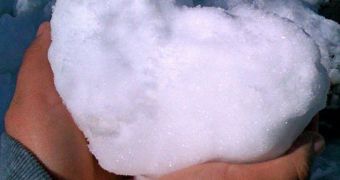Researchers in Lund, Sweden, have discovered that cold salt water reduces the heart damage in patients that undergo balloon angioplasty to open clogged heart vessel.
Their study showed that if the patients' body temperature was reduced under 35˚C (95˚F), they had more than 30 percent less risks of heart damage.
The hypothermia treatment involved cold salt water being infused through a vein in the arm into the body, with a cooling catheter being inserted through a vein in the groin, at the same time.
David Erlinge, Professor of Cardiology at Lund University, Sweden, said that they were “impressed by the powerful effect and believe that this treatment has the potential to be of great benefit to patients in the future.”
It was Professor Erlinge’s research group at the Department of Cardiology, Lund University, Skåne University Hospital that made this discovery, along with his colleagues Dr Göran Olivecrona and Dr Matthias Götberg. ´
after years of study they have developed this method that allows the safe and rapid cooling of the patients below 35˚C before opening the occluded vessel with balloon angioplasty.
This way, the patient is awake during the procedure and there is no more need for cooing pads or blankets, as the cooling is made from the inside.
The patient is rather comfortable and if he or she feels cold, a warm blanket can be used to warm up from the outside.
Professor Erlinge said: “We as cardiologists have been very good at opening the occluded blood vessel but not at protecting the heart muscle itself and this new treatment gives hope of great benefit for patients with acute myocardial infarction.”
The findings are also supported by the important reduction in biomarkers for cardiac injury, besides the reduced amount of heart damage.
As there was also no increase in side effects in the patients who were cooled, researchers are now planning a larger study which will be called CHILL-MI, AlphaGalileo relates.
Each year over 3 million people worldwide suffer from the type of heart attack called the acute myocardial infarction and they are exposed to the death of a major part of the heart muscle, that can lead to heart failure and early death.

 14 DAY TRIAL //
14 DAY TRIAL //